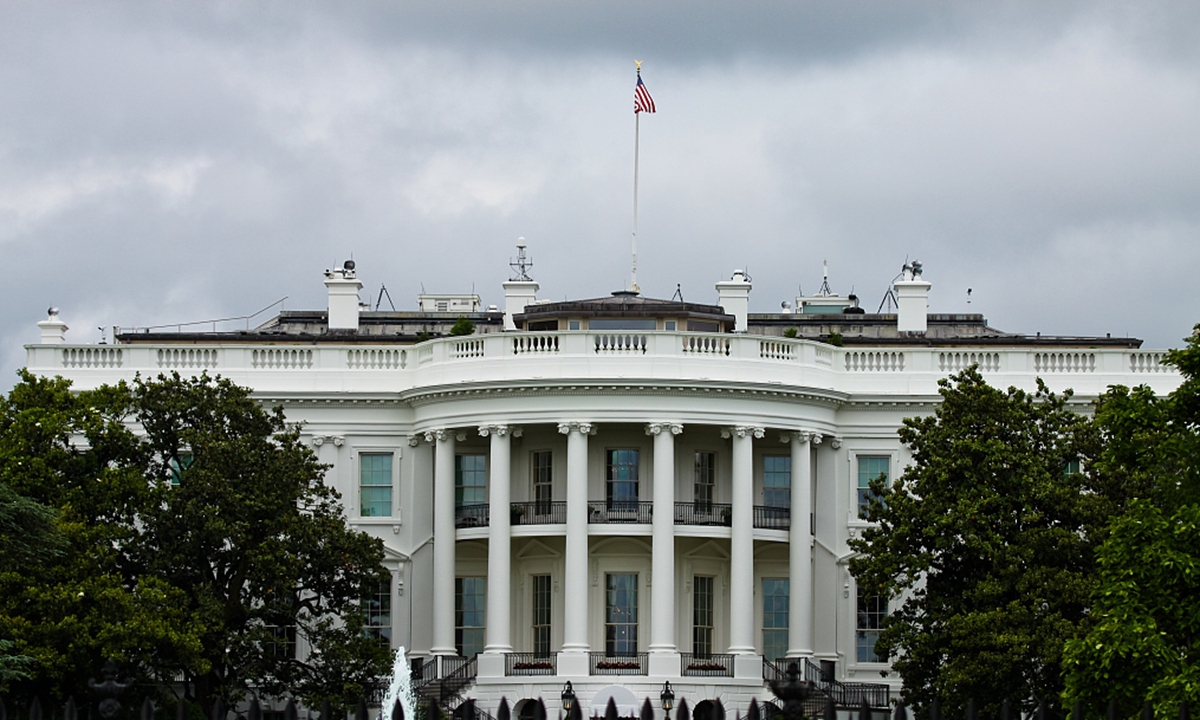
White House Photo: VCG
Outgoing US President Joe Biden intends to "set trap" or "leave troubles" for his successor in foreign affairs by approving a so-called "national security memorandum" on policies toward "China, Russia, North Korea and Iran" during the power transition process, said experts on Thursday, regarding the news report that Biden has reportedly approved a new document that could serve as a "road map" for the incoming administration as it looks to counter growing cooperation among the four countries.
The Associated Press reported on Wednesday that Biden administration officials began developing the guidance this summer. "It was shaped to be a document that could help the next administration build its approach from Day 1 on how it deals with the tightening relationships involving America's most prominent adversaries and competitors," according to two senior administration officials.
The US officials, who spoke on the condition of anonymity under ground rules set by the White House, said the classified memorandum would not be made public because of the "sensitivity of some of its findings," according to the AP.
The document includes four broad recommendations, including improving US government interagency cooperation, speeding up the sharing of information with allies about "the four adversaries," the AP reported.
Li Haidong, a professor at China Foreign Affairs University, told the Global Times on Thursday that "For Biden, in order to make sure his legacy in foreign policies or the troubles he made in foreign affairs could be inherited by Trump as much as possible, he is making his policies difficult to abandon."
The AP reported that Biden and Trump have sharply different worldviews, but officials in both the incoming and outgoing administrations said they have sought to coordinate on national security issues during the transition. One of the officials said that the Biden White House memo "isn't trying to box (the Trump administration) in or tilt them toward one policy option or another."
The official said the document is intended to help the next administration build "capacity" as it shapes its policies on some the most difficult foreign policies it will face, according to the AP.
"Biden and his team don't want the incoming administration to get rid of but to inherit all of these troubles. Biden knows there is nearly no hope to defeat Russia in Ukraine war but he wants the public's blame about the failure goes to his successor, and this is sort of like a trap, not track," Lü Xiang, a research fellow at the Chinese Academy of Social Sciences, told the Global Times on Thursday.
Li echoed that "that's why Biden is trying to leave a 'roadmap' for the incoming administration. Maybe he cannot affect Trump, but Biden might be able to affect some key members of Trump's team on foreign affairs who share some similarities with his view of pro-establishment Washington elites."
Chinese analysts said that such report appearing in the US media at this moment shows that the Biden administration might want to showcase its "legacy of foreign affairs." However, it's worth noticing that the Chinese government has never identified the US as its adversary like what some US politicians have done to China.
On December 3, Chinese Foreign Minister Wang Yi, also a member of the Political Bureau of the CPC Central Committee, met in Beijing with
a US delegation headed by Susan M. Elliott, President and CEO of the National Committee on American Foreign Policy. Wang said China's foreign policy, including its policy toward the US, maintains stability and continuity. This reflects the steadiness and credibility of a major country. No matter what changes within the US, China stands ready to improve and develop China-US relations based on the three principles of mutual respect, peaceful coexistence, and win-win cooperation.




